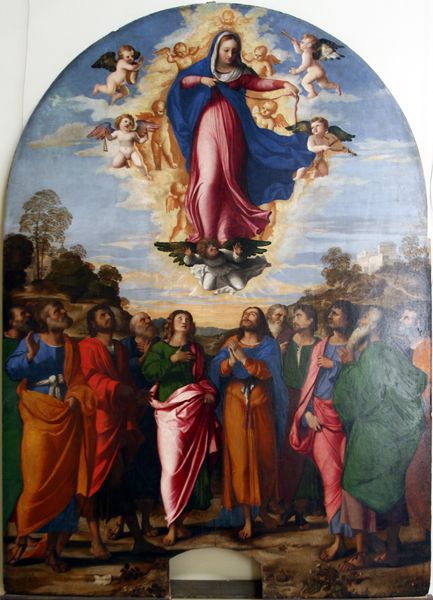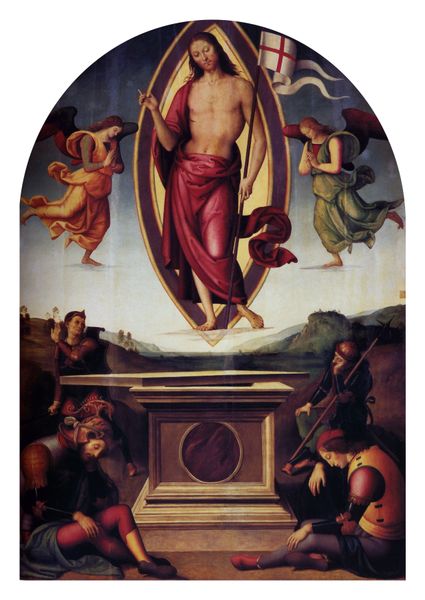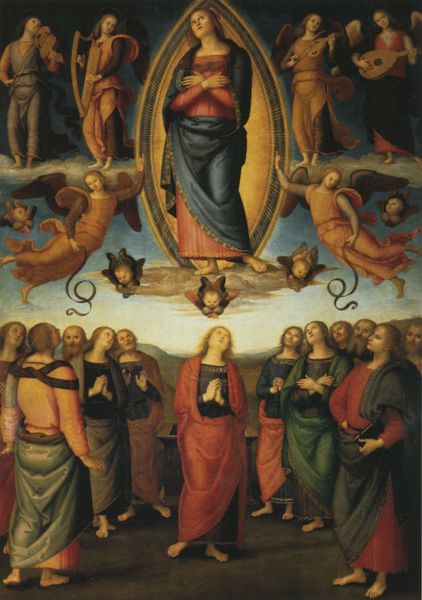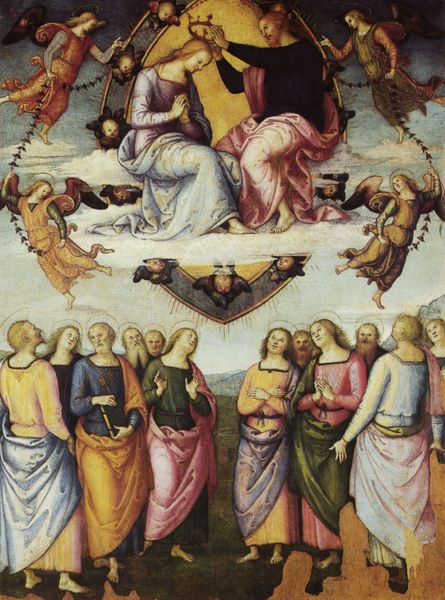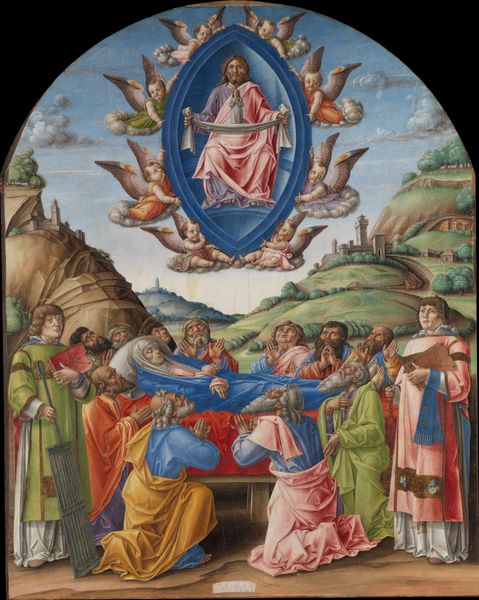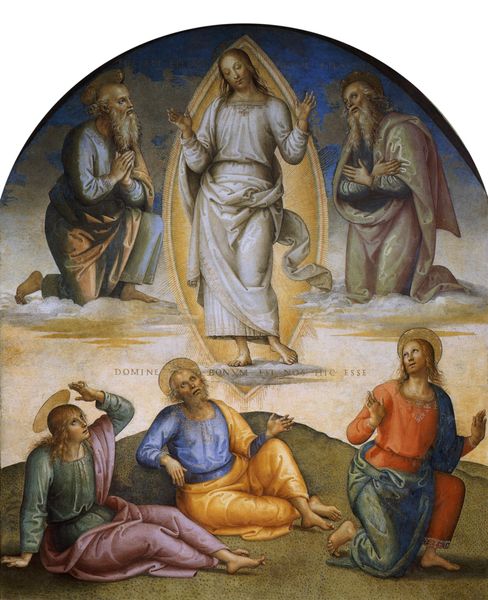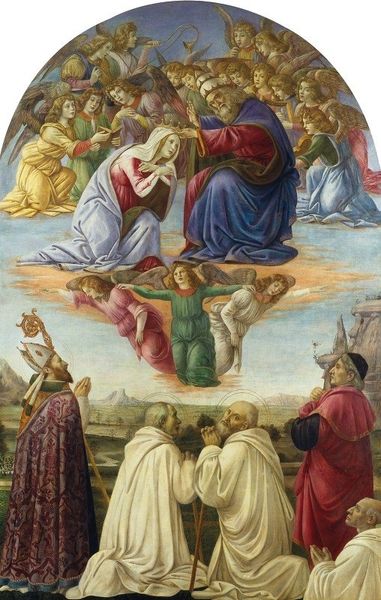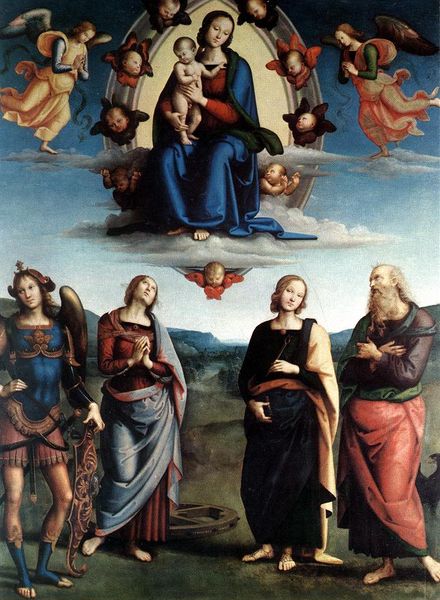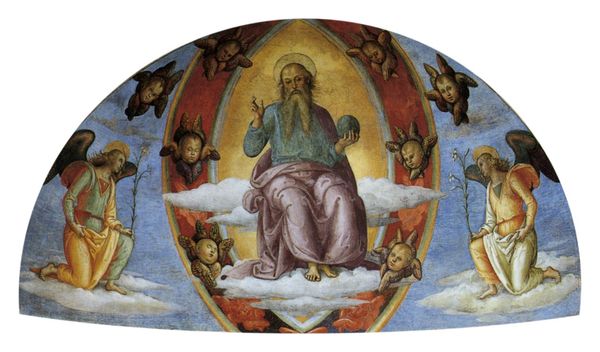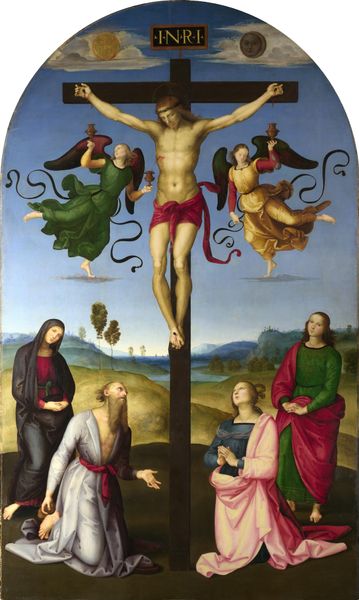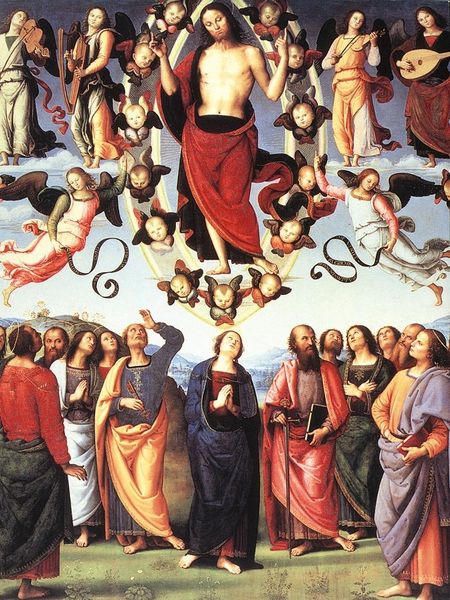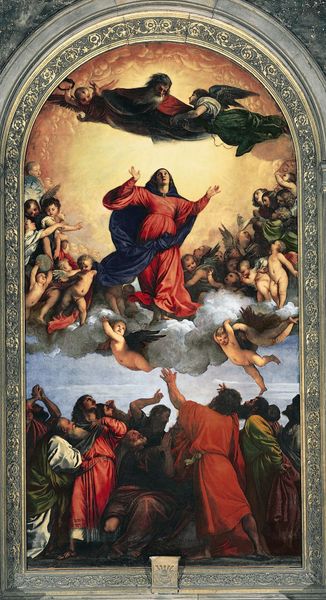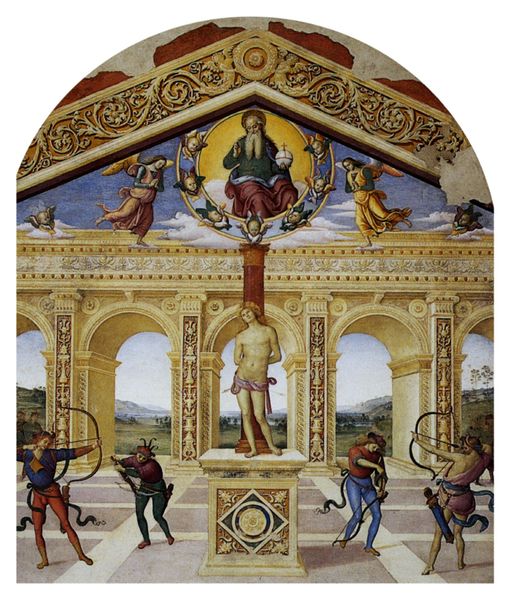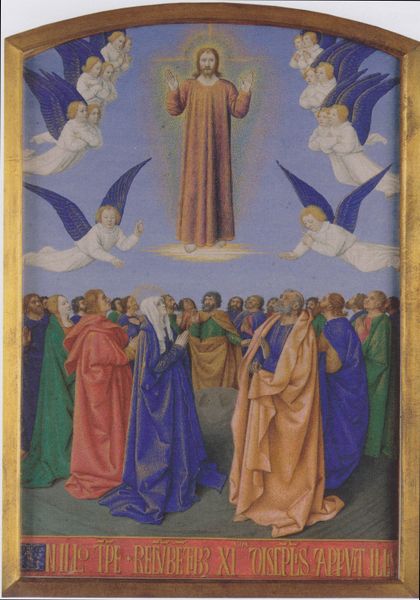
tempera, painting
#
portrait
#
high-renaissance
#
allegory
#
tempera
#
painting
#
perspective
#
figuration
#
group-portraits
#
christianity
#
central focal point
#
history-painting
#
academic-art
#
italian-renaissance
#
portrait art
Copyright: Public domain
Pietro Perugino completed this ‘Assumption of Mary’ painting using oil on wood, sometime around 1500. The appearance of the work is largely influenced by Perugino’s technique. Note the layers of paint meticulously applied to build up color and form. The painting's surface has a smooth, almost porcelain-like quality. This finish wasn't accidental; it reflects the value placed on skilled craftsmanship during the Renaissance. Beyond the religious subject, consider the economic context. Artists like Perugino operated within a patronage system, essentially working as contractors. The labor involved in producing such a detailed piece was considerable, from grinding pigments to preparing the wood panel and applying countless layers of paint. While we often focus on the artist's genius, it's crucial to remember the many unseen hands that contributed to these iconic artworks. Paying attention to materials, making, and context reveals the social and cultural values embedded within the 'Assumption of Mary.'
Comments
No comments
Be the first to comment and join the conversation on the ultimate creative platform.
